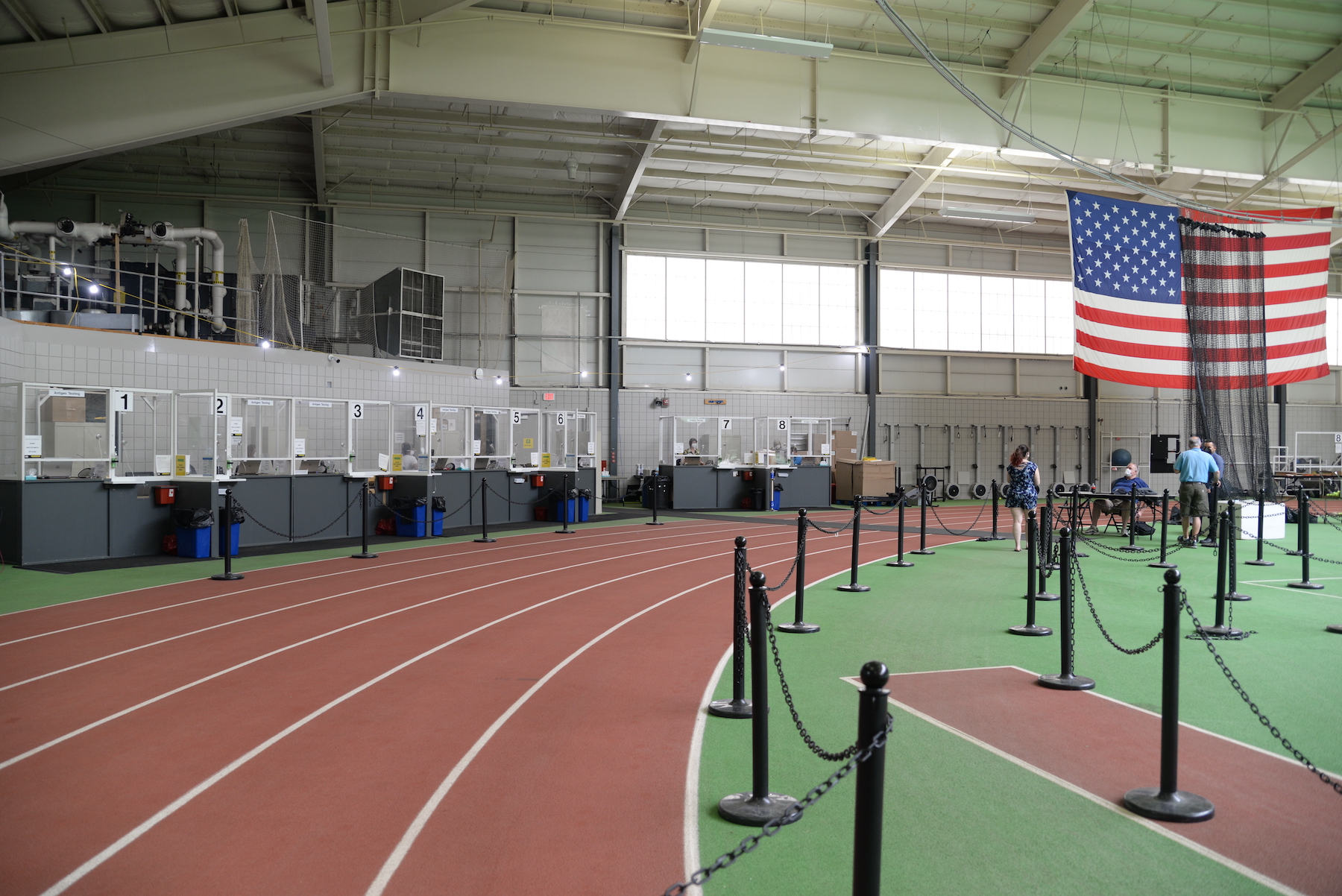College looks forward to relaxed Covid-19 policies despite high case counts
May 13, 2022
 Cora Dow
Cora DowAt the end of the fifth semester impacted by the Covid-19 pandemic, the College has had to adapt to various waves of infection on campus. Following the April 2022 outbreak, in which the College saw record numbers of positive cases on campus, restrictions have been mostly relaxed compared to previous semesters. Bowdoin will look to further relax and ultimately remove Covid-19 restrictions on campus in the near future.
In an email to the campus community on Tuesday, Covid-19 Coordinator and Associate Dean for Academic Administration Mike Ranen announced the College’s plan to discontinue PCR testing after May 26. He also stated that the College’s latest Covid-19 approach aims to bring a sense of normalcy back to campus while also minimizing the number of Covid-19 cases.
“The goal is to understand how to live with a pandemic, protecting vulnerable members of our communities but still allowing as much normal interactions as possible,” Ranen said. “The goal is to minimize Covid[-19] cases but not to get rid of all Covid[-19] cases.”
Reflecting on the College’s Covid-19 policies this semester, Ranen highlighted the College’s need to adapt in the face of B.A.2, a highly contagious subvariant of Omicron. The transmissibility of the subvariant prompted the College to revise its isolation policy.
“[B.A.2 is] different … by the time you find out you’re positive, you’ve likely already exposed others. So we knew we’re going to have a lot more cases, and we have limited isolation housing … Isolation is really challenging for mental health, and we also knew that because of how quickly Omicron is transmitted, that isolating somebody wouldn’t necessarily [prevent them from spreading it to their roommates],” Ranen said.
Considering B.A.2’s rapid spread, the College aims to limit transmission without committing to having a Covid-19-free campus. Ranen said that there is no specific threshold to determine when to impose restrictions.
“There’s not an absolute number,” Ranen said. “We know that increasing restrictions will lower outbreaks. But we also know that increasing restrictions is tough on the mental health of students, faculty and staff.”
According to Ranen, masking requirements are limited to spaces in which members of the Bowdoin community spend the most time and those where it would be difficult to limit the spread of the virus.
“We think about where people have no choice to be,” Ranen said. “People have no choice [but] to be in their classes, and they’re in their classrooms for a long time— up to 90 minutes. So we felt [that] in classrooms, we still wanted to have masks required for everybody’s comfort level.”
Looking ahead, Ranen said the College will constantly reassess its Covid-19 policies and remains hopeful to relax most restrictions for the summer and into the fall semester.
“Unless there is a new variant that is more [transmissible] that has serious illness, we hope to have minimal restrictions for the summer [and] in the fall,” Ranen said.
The College also hopes to implement a more relaxed Covid-19 surveillance program next year as a part of the contingency budget.
“We do carry contingency amounts in our budget … Hopefully we’re in a situation where we don’t need to rely on surveillance testing to the extent that we have previously,” Senior Vice President for Finance and Administration and Treasurer Matt Orlando said.
“Ideally, there’d be no testing at all, but again, you can never guarantee anything with this virus.”
Bowdoin has yet to make a decision on whether it will work with the Broad Institute, Bowdoin’s current testing processing partner, for PCR testing next year.
“As of right now, we’ll continue to monitor the variants. We’re hopeful that we’ll be able to rely on antigen tests for … symptomatic testing. But if we need to do surveillance testing, we’ll certainly be interested in conversations with Broad because they’ve been fantastic partners,” Orlando said.
Orlando noted that the College has gained more experience quickly pivoting on very short notice to change Covid-19 protocols, which will be crucial in the event of persistent outbreaks on campus in the future.
Ranen emphasized that the campus’s frustrations are understandable and commonly felt.
“This is not just an issue for students. This is an issue for me. I have small children; luckily they’re vaccinated,” Ranen said. “Covid[-19] is not just affecting college students. Covid[-19] has affected all of us.”
Ayub Tahlil contributed to this report.

Comments
Before submitting a comment, please review our comment policy. Some key points from the policy: